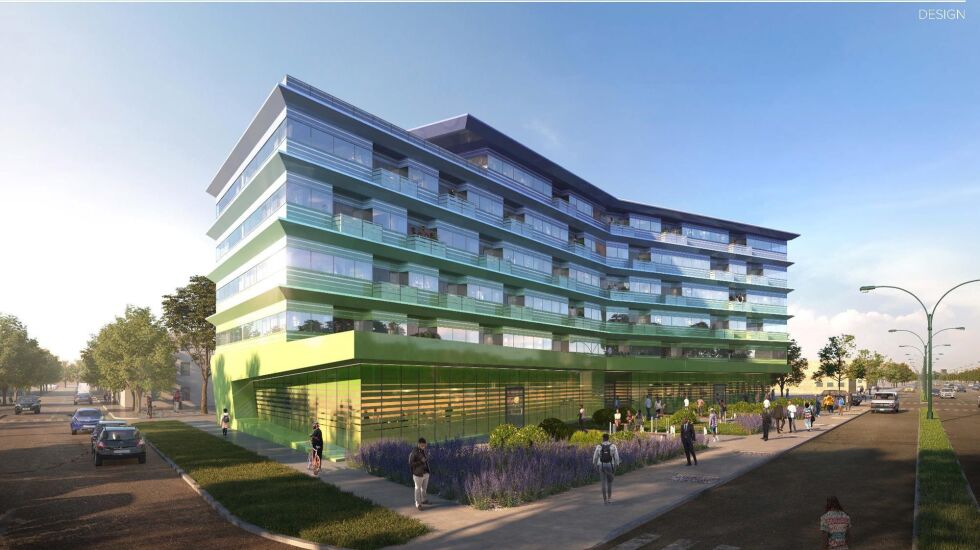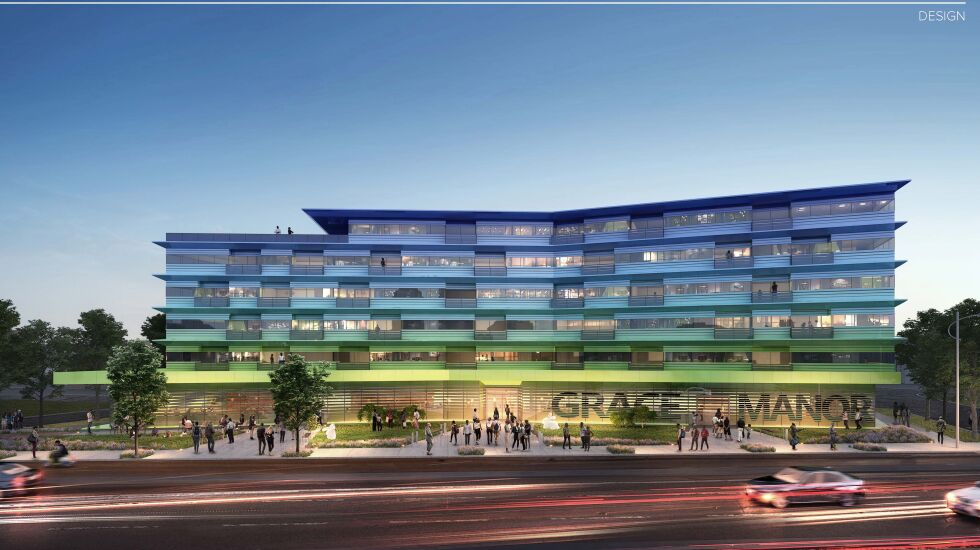
Developers of a mixed-income affordable housing complex in North Lawndale hope to inspire residents to return to a community where lack of affordable housing has driven people away.
The six-story, 65-unit building, Grace Manor, has been pioneered by Rev. Marvin Hunter, pastor of the nearby Grace Memorial Baptist Church.
The site, 3201-3423 W. Ogden Ave., was an underused police station parking lot. The building will have retail and commercial space on the ground floor.
“I believe that this building will become an anchor and it will start the beginning of positive development in this community,” Hunter said.
Of the 65 units (31 one-bedroom, 34 two-bedroom), 19 units will be subsidized by the Chicago Housing Authority, according to CHA Chief Development Officer Ann McKenzie.
The $40 million project is part of Hunter’s 25-year effort to bring more housing to North Lawndale and is scheduled to break ground Monday. Hunter said much of that money is being reinvested in the community with local contractors and partners, a unique approach for developments.
Ald. Monique Scott (24th) said Hunter and his partners worked hard to involve the community in the project.
“It’s bringing jobs to the community,” she said. “To build, we have young young men that are from the community that are working on the project.”

Hunter’s nonprofit Grace at Jerusalem CDC partnered with Chicago-based East Lake Management and Burling Builders to develop Grace Manor. Grace at Jerusalem CDC will have a ground-floor office in the building, providing services to “meet the people in the community at the points of their need.”
The project is expected to be complete by May or June of 2025, Hunter said.
The energy Hunter brought to the project and the community’s engagement with it were what most drew CHA to Grace Manor, she said.
“This was very community-led by the pastor, and Pastor Hunter never gave up hope,” McKenzie said.
The project began under then-Mayor Lori Lightfoot as part of INVEST South/West. In 2022, Lightfoot authorized the use of Multi-Family Housing Revenue Bonds, TIF funding and Multi-Family Loan Funds for the housing complex. Hunter said when Lightfoot lost reelection, he worried a new mayor would put a stop to the project. Instead, he said the opposite happened.
“Brandon Johnson stepped in like a champion of housing,” Hunter said. “He saw this project, he believed in what the mission of it was.”

Scott said the Johnson’s administration’s support made it possible to close the deal. Since taking office, Scott said she has worked “tirelessly” to make sure this project was completed because lack of housing is the main issue residents bring to her.
Since 1990, the population of North Lawndale has decreased by about 26%, according to data from the U.S. Census Bureau. Scott said lack of affordable housing is a major contributor to that loss.
“This is a way to bring back some residents and maintain the current residents that we have because so many people are looking for housing in this community,” Scott said.
She also hopes the project will encourage more development in the community.
“Hopefully it’ll bring more developers to the community so that we can start to build and rebuild our community that hasn’t been invested in in over 60 years,” she said.
Hunter took inspiration from Martin Luther King Jr., who moved to an apartment in North Lawndale in 1966 to advocate for better and more affordable housing in Chicago and to draw attention to living conditions on the city’s West Side. King’s efforts eventually helped lead to Congress passing the Fair Housing Act in 1968.
Like Scott, Hunter, a lifelong North Lawndale resident, hopes Grace Manor will encourage others to invest back into the community rather than leave.
“A lot of our young people go to good schools and they get a good education so they can leave this community and go live where they think good communities are,” he said. “I pray that this building will inspire people to come back.”







